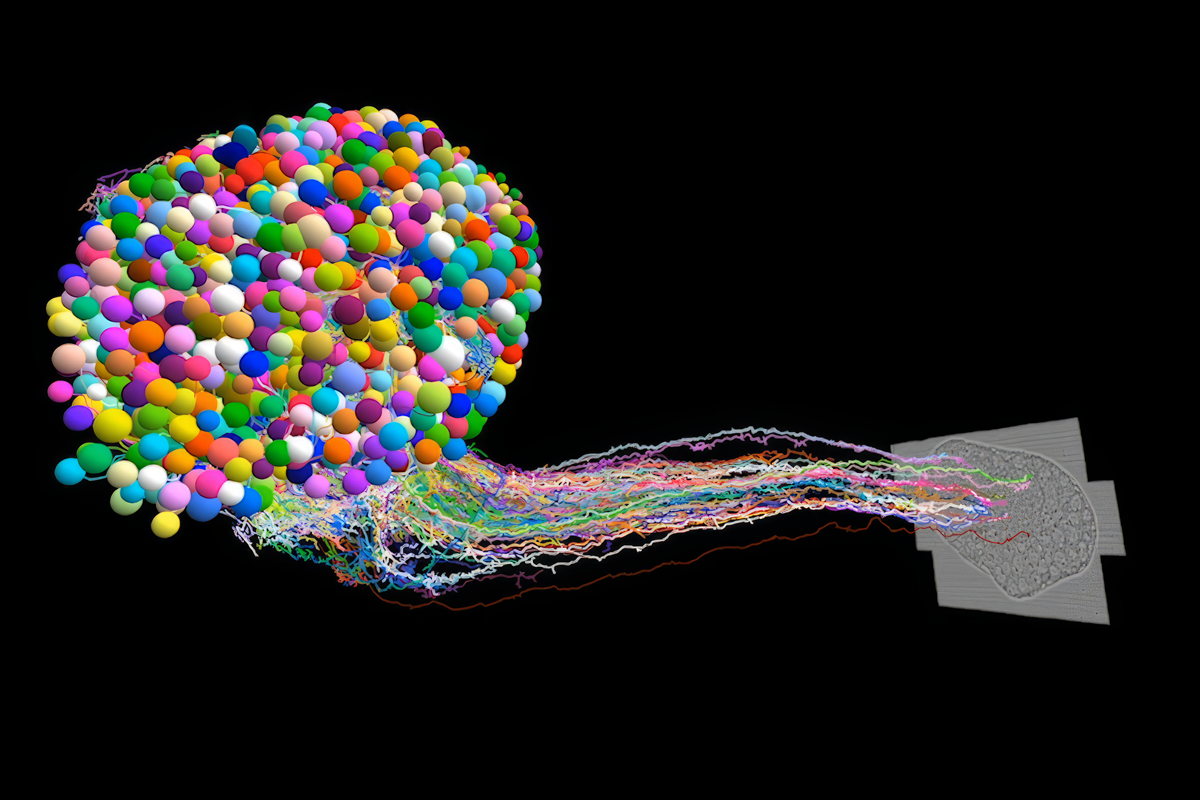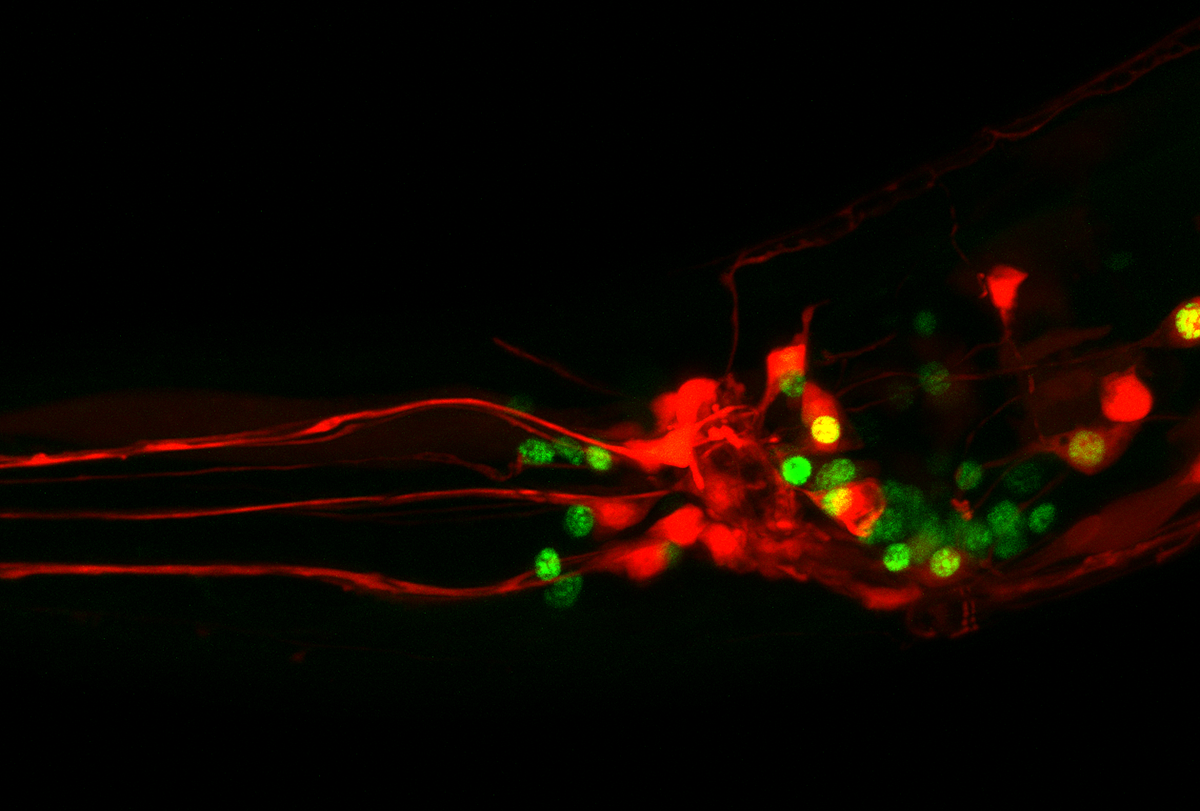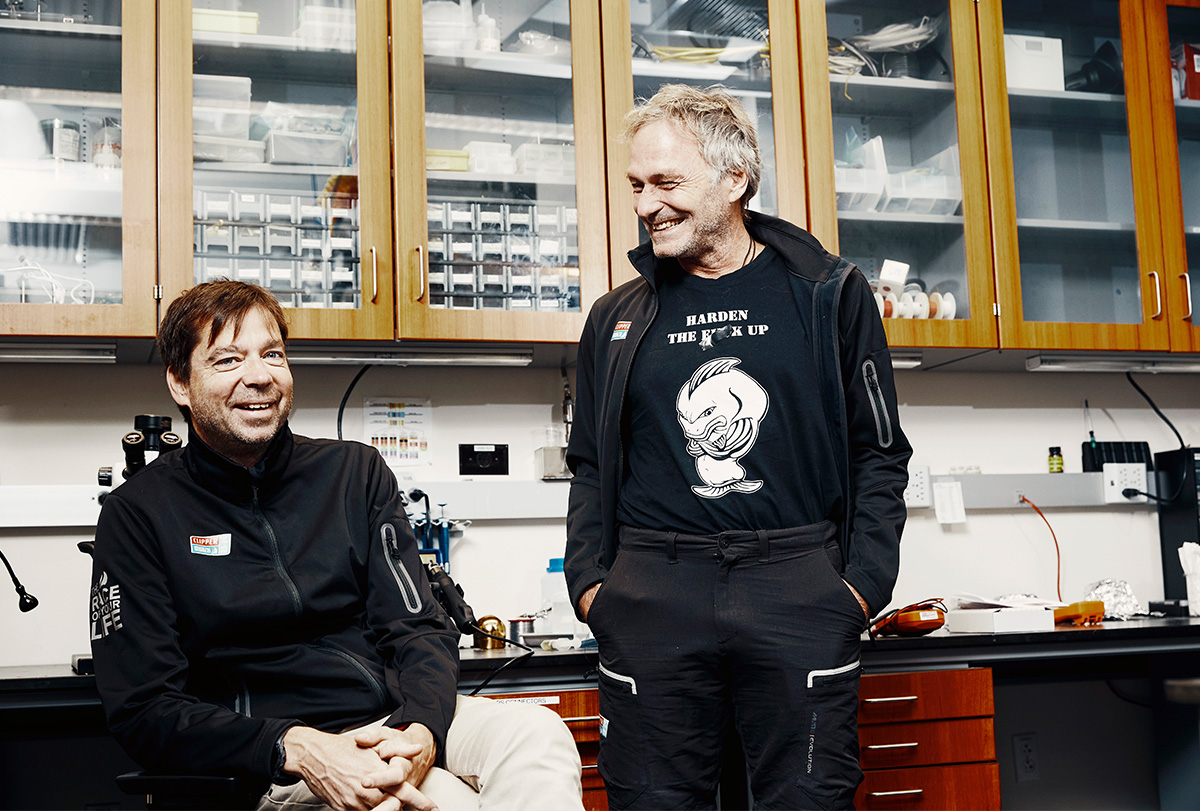It has been a year of many firsts for the Transmitter team. Despite launching this site just over a month ago, though, we published dozens of news stories on a range of important topics in neuroscience research earlier in the year in Spectrum. Here, we bring you a short list of some of our favorites, which broke news about changes in research leadership, exposed issues in studies involving human participants, provided new insights into the brain’s neuropeptide signaling network and memory-encoding mechanisms, and gave glimpses into the lives neuroscientists lead outside of work.

Standout neuroscience news in 2023
Did you miss any of our favorite stories from the past year? Revisit them here.
‘Wireless’ connectomes detail signaling outside synapses

Connectomes were once again all the rage this year. As some teams continued to map the complete circuitry of increasingly larger brains — including those of a larval and an adult fruit fly — other teams went back to basics, plugging some invisible gaps of the humble roundworm’s synaptic connectome. Those latter efforts detail how neurons communicate using short proteins called neuropeptides outside synapses, helping to address key criticisms of conventional wiring diagrams.
Neural ‘barcodes’ help seed-stashing birds recall their hidden hauls
As we enter the throes of winter here in New York City, some of the resident non-migratory birds may begin to seek out the seeds they stashed earlier in the year to help them survive for the next few months. Their ability to relocate their caches may stem from memories stored in the hippocampus in the form of non-overlapping patterns of brain activity, or “barcodes,” new research suggests. These barcodes originate when a bird hides a seed and reappear only when the bird returns to that same seed — and may represent the basis for episodic memories of specific events in time.
Sailor-scientists Florian Engert and Bence Ölveczky take on the Southern Ocean

Last month, the two Harvard University neuroscientists and long-time friends set sail from South Africa to Australia through the “Roaring Forties” — southern latitudes known for towering waves and steady gale-force westerlies — as part of the Clipper Round the World Yacht Race. In this Q&A, the duo shared what it is like to sleep and cook on the high seas and playfully critiqued each other’s volleyball skills back on land. As of mid-December, their team, “Washington, D.C.” was less than 300 nautical miles west of Fremantle, Australia, where they finish the race.
‘Troublesome pattern’ of retractions due to lack of participant consent

In July, psychology researchers at the University of Maryland lost eight studies to retraction, following a university investigation that found the team had failed to obtain participant consent. News of 10 additional retractions soon followed, and one of the scientists — who co-directed a now-shuttered psychotherapy clinic implicated in the retractions — retired after a 49-year career.
Leadership change following suicide in clinical trial

In June, the New York State Psychiatric Institute suspended research on human participants and, a month later, announced a change in leadership. Interim head Helen Blair Simpson stepped down, and Jeremy Veenstra-VanderWeele became the new director. The changes came amidst scrutiny of that institute linked to the clinical trials conducted by Bret Rutherford, formerly of Columbia University. In 2019, a participant in one of these trials died by suicide. The ensuing investigations prompted an end to ongoing trials and the retraction of two pilot studies. In addition, Rutherford’s funding was not renewed and the New York State Psychiatric Institute began an audit.
Recommended reading

In case you missed it: Standout news stories from 2024

The Transmitter’s favorite essays and columns of 2024

Say what? The Transmitter’s top quotes of 2024
Explore more from The Transmitter

During decision-making, brain shows multiple distinct subtypes of activity

Basic pain research ‘is not working’: Q&A with Steven Prescott and Stéphanie Ratté
